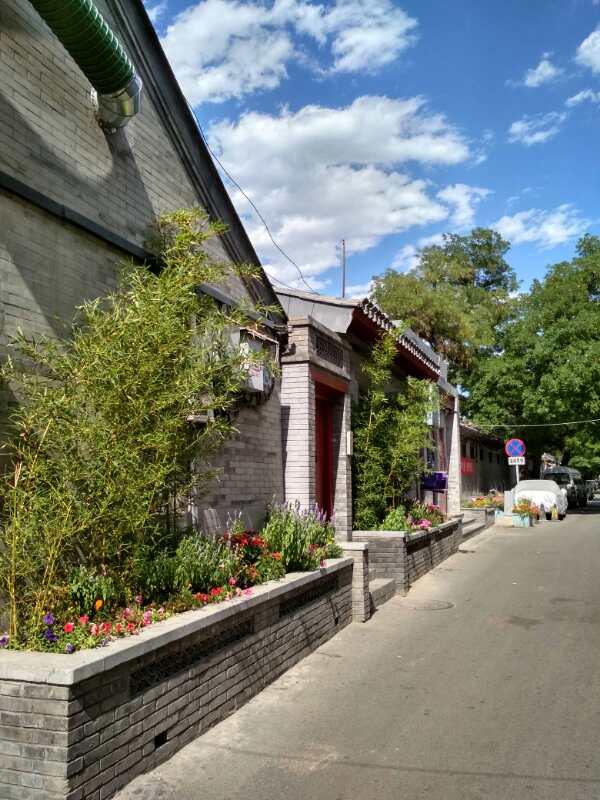July 2018

This summer, thanks to the support of Romieniec Graduate Traveling Fellowship from the College of Architecture, and a Graduate Research Fellowship from the Glasscock Center for Humanities Research, I have the opportunity to work closely with the local community which I’m studying and writing on for my doctoral dissertation. The neighborhood is an 800-year-old historic and cultural conservation area in the center of Beijing, China. Before going into field research, I had my IRB (human subject research) approval in the Spring, and designed a resident perception study on historic preservation to carry out during the Summer. Now, going into the second month of my summer work, I want to share a few tips that helped me to make this process a little smoother.
1. Build your contact network
If your target community is not the one you spend most of your time living in, getting to know the right people can be the very first (and the biggest) problem. It definitely will take a lot of planning, time, and energy to build the network, but it is totally worthy. I started off relying a lot on my primary contact, but I gradually built my own network based on the primary contact’s network. Now I have several “types” of contacts at hand: the most connected people on a particular issue in the target community; the authoritative figure in the community who knows a lot about the decision-making process; the closest friend you have in the community who can do a lot of detailed labor (contacting, gathering information) for you while you are not physically present in the community; and the group of community members who are most interested and active in your research project.
2. Show up as often as possible
Even I need time to organize my material and actually write down research notes, I plan my time to participate in community events as often as possible and spend time to build trust with the community I’m working with. Being objective might be one of our goals as a scholar, but the community members’ willingness to communicate with me sometimes depend on their emotional feelings of me as a person. Every time I show up, explain patiently about what I’m doing, and tell them that through my study, I care about and can actually contribute to the social well-being of the community, the residents start to trust me more and give me the time and space to carry on with my research.
3. Always ask questions
Don’t assume that you know every aspect about everything happens in the community, even if you have spent years studying in the field. When I ask the community members, I always learn new things. Their latest information, insights, and suggestions actually help me a lot to improve my research design, generate new questions, and troubleshoot my existing ideas. Believe it or not, wisdom does come from the field.
I will continue to share my experience from the field as I go deeper into my summer research, and I encourage all my humanities and social science friends to share your insights about working with local communities in your own research!
---
Mingqian Liu
Mingqian is a fourth-year doctoral student in the Department of Architecture